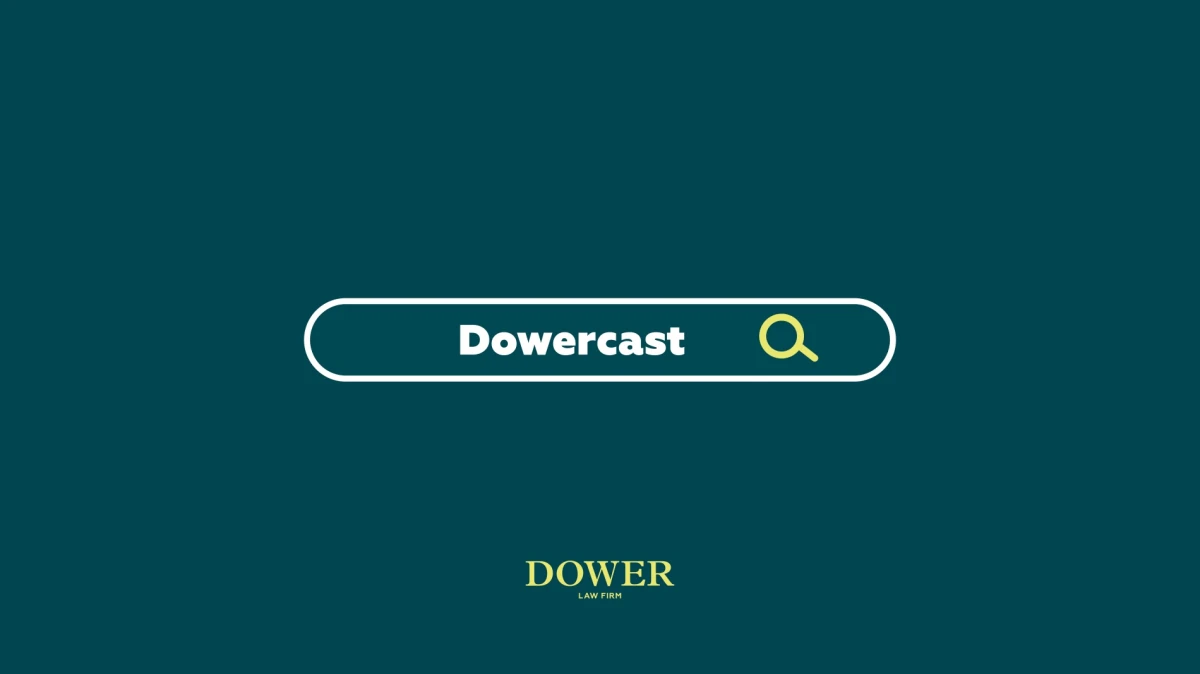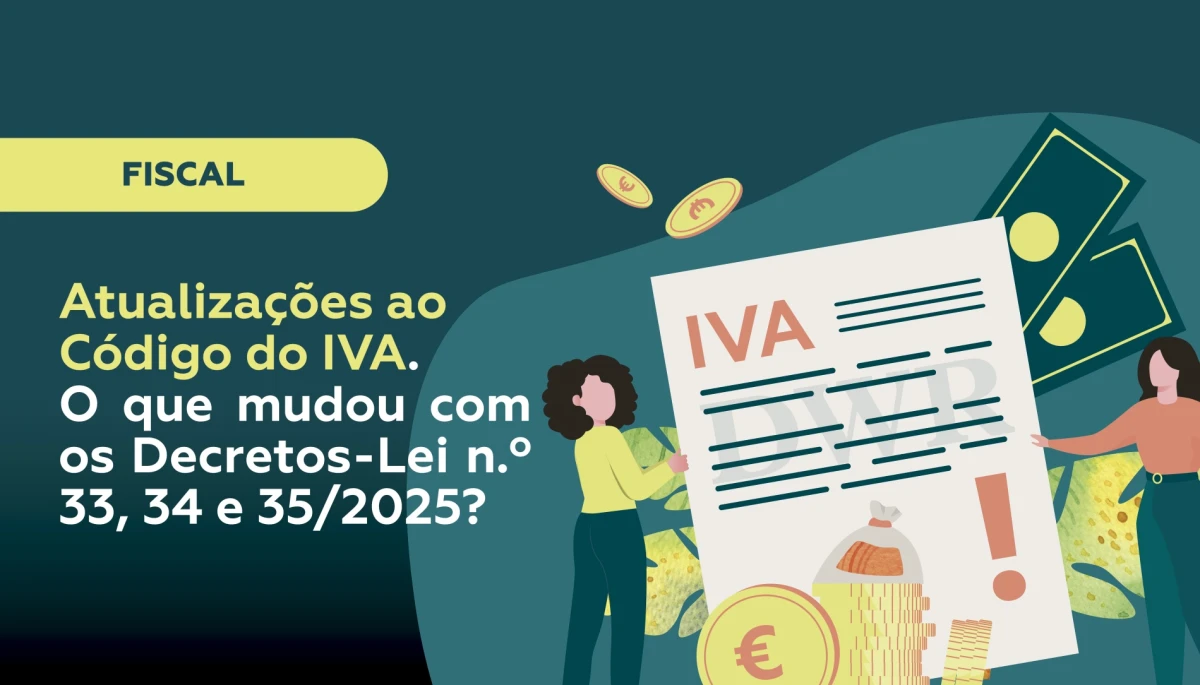Decree-Law 49/2025, of March 27, approves more than 20 tax simplification measures, some of which had already been previously announced as part of the Agenda for Tax Simplification, with the aim of making procedures and reporting obligations easier.
The Agenda for Tax Simplification seeks to reduce contextual costs, increase transparency and understanding of tax obligations, and improve the quality of services provided by the Tax and Customs Authority.
- Personal Income Tax Code
The main changes in the Personal Income Tax Code relate to the harmonization of various reporting deadlines, which have been standardized to the end of February to provide greater simplicity for taxpayers and institutions in fulfilling their reporting obligations.
Thus, the following obligations are now due on the last day of February:
- Submission of proof of attendance at an official or authorized educational institution, for the purpose of exemption from taxation – Article 12;
- Communication of shared residence as outlined in the parental responsibility agreement, for the division of income earned by dependents included in the aggregation – Article 22;
- Identification of invoices or documents supporting expenses and charges related exclusively or partially to business or professional activities, for their allocation to the activity, as well as properties used for the same, for the purpose of determining expenses and charges under the simplified regime – Article 31;
- Communication of relevant personal details, including the composition of the family unit on the last day of the year to which the tax applies, for inclusion in the automatic income declaration – Article 58-A;
- Communication of the percentage of expenses in the context of a parental responsibilities regulation agreement, in case the agreement stipulates an unequal sharing of expenses, for the purpose of tax deductions – Article 78;
- Communication and classification of invoices for general and family expenses, electronically, for the purpose of tax deductions – Article 78-B.
- Communication by public health establishments of the amount of user fees paid by taxpayers, which are considered for tax deductions – Article 78-C;
- Communication by public establishments of the amount of tuition fees and other deductible charges for tax deductions, as well as the obligation of taxpayers to report invoices for expenses related to student accommodation rental – Article 78-D;
- Charges related to nursing homes that are considered deductible must be communicated by public establishments – Article 84;
- Regarding the obligation to report receipts and invoices, submission of an official declaration detailing the income received by their tenants – Article 115;
- Communication of income and withholdings by the entities owing them – Article 119;
- Communication of transactions involving the entity’s intervention regarding cryptocurrencies – Article 124-A;
- Communication of expenses by entities that may contribute to health expenses, regarding the contribution for each taxpayer [Model 37] – Article 127.
- In addition to the above, excessive obligations are also eliminated, such as withholding tax when the amount is less than 25.00 Euros for categories B, E, and F, amending Article 101-B.
- Corporate Income Tax Code
Regarding the communication of expenses and losses, it is stipulated that suppliers of goods or service providers are required to issue invoices, removing the reference to “or legally equivalent document,” amending Article 23.
Concerning impairment losses of non-current assets under Article 31-B, the new wording states that the taxpayer must obtain approval from the Tax Authority (AT) to consider impairment losses as tax-deductible expenses, provided a well-supported explanation is submitted, when dealing with intangible assets or when physical write-offs, dismantling, abandonment, or the asset’s obsolescence do not occur within the same tax period.
Regarding tangible assets, for facts that resulted in exceptional depreciation and physical write-off, dismantling, abandonment, or obsolescence occurring within the same tax period, communication can now be made to the Large Taxpayers Unit. Communications and substantiated explanations are no longer required when, before the occurrence of the facts leading to the exceptional depreciation, the net tax value of the asset in question is equal to or less than 10,000.00 Euros.
Concerning changes to the regime for profits and losses of permanent establishments located outside Portuguese territory, the taxpayer may waive the option for non-concurrence in determining taxable profit for the profits and losses attributed to the permanent establishment outside the Portuguese territory until the end of the 3rd month of the respective tax period, unless the permanent establishment is created after that deadline, in which case the communication must be made within 30 days from the establishment’s creation date, with the deadline being the last day of the tax period in which the regime is intended to begin.
The withholding tax regime is simplified whenever the amount of each withholding is less than 25.00 Euros, according to the new wording of Article 97.
Additionally, Article 136 is repealed, which previously outlined an individual, confidential process that included declarations and other elements related to the taxpayer.
- VAT Code
The general obligations of Article 29 are amended as follows:
- Those engaged in production, trade, or provision of services must now submit a monthly declaration regarding the transactions carried out.
- The obligation to submit, via electronic transmission, summary reports for internal transactions exceeding 25,000.00 Euros [Annex O to IES] has been eliminated.
- Exempt transactions of goods and services must now be evidenced by customs documents, simplifying the verification process.
The exemption from submitting the declaration of commencement of activity no longer has a limit in the case of carrying out only a single taxable transaction, according to Article 31.
The deadlines for submitting the periodic declaration, as provided in Article 41, are amended as follows:
The requirement to maintain the monthly submission regime for a period of three years is no longer required. The option remains valid until the taxpayer submits the declaration of changes. The declaration of changes is mandatory whenever the turnover from the previous year is equal to or exceeds 650,000.00 Euros.
For taxpayers exclusively carrying out exempt transactions and for those starting their activity, the turnover is determined based on their forecast for the current civil year.
The registration of transactions carried out by taxpayers who do not have organized accounting is simplified, as per Article 46. Regarding changes to the registration of transactions carried out by taxpayers who do not have organized accounting, Article 50 has a new heading and undergoes significant changes. Taxpayers in this situation must:
- Classify the invoices, distinguishing, in active transactions, the transfer of goods and provision of services, and, in passive transactions, the expenses incurred in the course of the activity;
- Differentiate transactions related to investment goods.
Several provisions of the article are repealed to eliminate the registration books. It is important to note that, according to the transitional provision, the elimination will only apply to future transactions, and the books must still be kept until the end of the period specified in the article.
In the same vein, the 10-year period for filing and preserving records has led to the elimination of the books, with only records and supporting documents remaining.
Similarly, Article 52 eliminates the reference to the registration books.
The registration of transactions in Article 65 also no longer requires the mandatory books, and the obligation now arises to differentiate, in active transactions, the transfer of goods and provision of services, and, in passive transactions, the expenses incurred in the course of the activity.
A new obligation is introduced to confirm the provisional declaration made available on the Tax Authority Portal, rather than just making the payment, according to the new wording of Article 67.
By the 20th of the second month following each quarter of the civil year.
Rules requiring the submission of declarations have been eliminated, including the VAT settlement declaration for the special regime for small retailers [Model 1074].
One of the most significant changes was the addition of Article 29-A, which provides for the possibility of an automatic periodic declaration. Taxpayers must confirm it if it covers all taxable transactions, in which case it is considered submitted according to legal terms. If not all transactions are covered, the taxpayer must submit the periodic declaration according to the general rules. The scope of this declaration is still pending regulation.
- Stamp Duty Code
Article 44, concerning the refund and collection of small amounts settled by the Tax Authority (AT), is amended, and now such amounts are only refunded or collected when equal to or greater than 10.00 Euros.
It is important to highlight the addition of two payment options for the tax on free transfers, as provided in Article 45, which are:
- Immediate payment with a discount;
- Installment payment plan.
The articles 52 and 56 of the Stamp Duty Code, which established the obligation to submit the annual stamp duty declaration [Annex Q of IES], are repealed.
The assessment initiation regime under Article 37 is simplified, specifying that documents must be submitted electronically, and inspection of properties built before August 7, 1951, is no longer required. For construction land, the required documents are reduced.
- Municipal Tax on the Transfer of Real Estate
The wording of Article 7 is amended so that, for the exemption on the acquisition of properties for resale, the certificate confirming that properties acquired for resale were resold within the previous two years will now be obtained through the Tax Authority Portal.
- Tax Benefits Statute
Regarding tax benefits applicable to interior territories and Autonomous Regions, it is clarified that the deadline for indicating family members attending educational institutions, for the purposes of increased deductions and tax deductions, is until the end of February, as per Article 41-B.
- General Tax Law
Article 59, concerning the Principle of Cooperation, is amended to reduce the minimum advance notice for the availability of digital forms by the Tax Authority (AT) for fulfilling certain IRS and IRC reporting obligations from 120 to 90 days.
- Tax Procedure and Process Code
Certificates proving regularized tax status, issued by the Tax Authority (AT), will now be valid for four months instead of three, as per Article 24.
- Complementary Regime for Tax and Customs Inspection Procedure
The article regarding the regularization of tax status, Article 58-A, is amended. The previous regularization meeting is replaced by a proposed document outlining the intended regularization, which will be made available by the Tax Authority (AT) within 10 days. The entity has 10 days to either accept the document or request a meeting.
The inspecting entity is obligated to fulfill the obligations outlined in the regularization document within 15 days after its acceptance or after the meeting. If the entity fails to comply with the obligations, this fact will be recorded in the final report, as was previously stipulated.
The suspension deadlines in Article 36, when a request for tax status regularization is made by the inspected entity, are amended accordingly. Article 62 has also been amended in alignment with this change.
|
DL No. 8/2007, of January 17 |
Article 2, regarding the IES (Annual Taxation and Reporting Statement), is amended by eliminating the obligation to submit Annexes O - Summary of Clients and Q - Annual Stamp Duty Declaration of the IES. |
|
DL No. 125/2021, of December 30 |
Concerning the installment payment regime, Article 7 is amended to provide greater speed and simplicity in the automatic approval of installment payment requests where the exemption from collateral applies. It also streamlines the process for requests for monthly installment payments, up to three installments of equal to or greater than 25.00 Euros, which can now be made electronically until the deadline for submitting periodic declarations, as per Article 16-C. |
|
DL No. 28/2019, of February 15 |
Article 4-A is added. This introduces the invoicing application provided by the Tax Authority (AT), aimed at facilitating and streamlining invoicing processes for taxpayers with a permanent establishment or residence in the national territory, as well as other taxpayers whose invoicing obligations are subject to internal legislation. The use of the application is mandatory for taxpayers who carry out only a single taxable transaction. The application allows users to consult invoices and other fiscal documents. |
- Repeals
The following legal provisions are repealed:
Decree-Law No. 62/2005, of March 11, amended by Laws No. 39-A/2005, of July 29, and No. 37/2010, of September 2, which transposes Directive No. 2003/48/EC of the Council, of June 3, concerning the taxation of savings income in the form of interest.
Ordinance No. 563-A/2005, of June 28, which approves the declaration and certificate forms provided for in Article 3 of Decree-Law No. 62/2005, of March 11, which transposed Directive No. 2003/48/EC of the Council, of June 3. As a result, the following forms are eliminated:
- Form No. 35: “Savings income in the form of interest paid or attributed to non-residents”;
- Form No. 36: “Savings income in the form of interest paid or attributed to individuals who are not effective beneficiaries”;
- Form No. 01-DP: “Declaration of option”;
- Form No. 02-DP: “Request for certificate of paying agent as ‘OICVM”;
- Form No. 03-DP: “Certificate of paying agent as ‘OICVM”;
- Form No. 04-DP: “Request for certificate for exemption from withholding”;
- Form No. 05-DP: “Certificate for exemption from withholding”.
The changes will come into effect on July 1, 2025.






